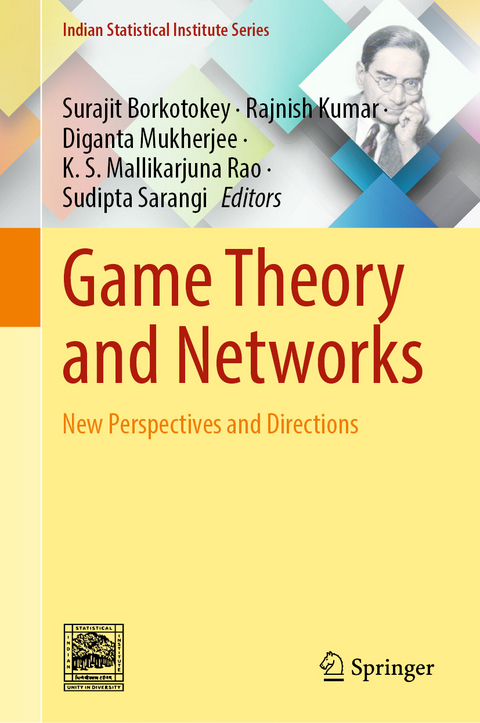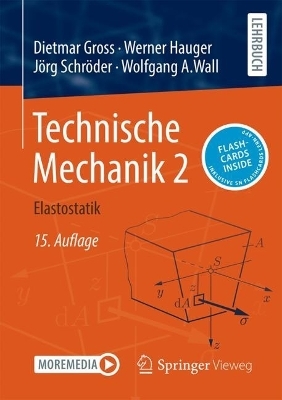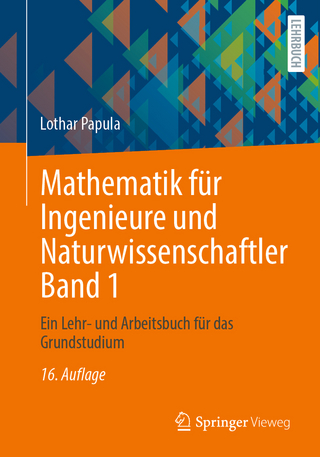
Game Theory and Networks
Springer Verlag, Singapore
978-981-16-4736-9 (ISBN)
This book discusses the use of game theoretic tools and network models across disciplines: mathematics, statistics, economics, computer science, political science, sociology and psychology. It aims at providing a suitable learning experience to beginners on the basics of cooperative games, networks and mechanism design, as well as recent developments to research scholars having the basic knowledge of these topics.
Surajit Borkotokey is Professor at the Department of Mathematics, Dibrugarh University, Assam, India. He completed his Masters from the University of Delhi and Ph.D. from Dibrugarh University. His fields of research are cooperative game theory, networks, aggregation and fuzzy set theory. An Indo-US fellow, Prof. Borkotokey did his post-doctoral research at Louisiana State University, USA. He has been Visiting Professor to the Beijing Institute of Technology, China, and the Slovak University of Technology, Bratislava, besides having collaborations with Virginia Tech, Central Florida University and the University of Paris. He has published over 50 research articles as of now. He has been Guest Editor of a special volume of the Studies in Microeconomics, in 2015. Currently he has been working on a UKIERI project awarded by the British Council and the Ministry of HRD, India, with Queen’s University, Belfast, UK. Rajnish Kumar is Senior Lecturerin Economics at Queen’s Management School at Queen’s University, Belfast, UK. He has earned his Ph.D. in Economics from Rice University, Houston, and the Master’s degree from the Indian Statistical Institute, New Delhi, India. His research interests include game theory, network economics, mechanism design and welfare economics. His publications include papers in the fields of fair division, network economics, industrial organization and resource allocation. He has published in journals including the Economic Theory, the European Journal of Operational Research, the International Journal of Game Theory, the Mathematical Social Sciences, the Economics Letters and the Manchester School. Dr. Kumar regularly presents in conferences like the world congress of game theory, social choice and welfare, royal economic society and others. He has been teaching undergraduate and graduate courses on game theory, microeconomics, industrial organization and economics policy. Member of professional societies like the Econometric Society, the Society of Social Choice and Welfare, The Game Theory Society and the Society of Economic Design, Dr. Kumar is recipient of several research grants including from the British Council, the Medical Research Council, the British Academy and the International Growth Centre. Diganta Mukherjee is Associate Professor at the Sampling and Official Statistics Unit of the Indian Statistical Institute (ISI), Kolkata, India. Earlier, he taught at Jawaharlal Nehru University, New Delhi, India; the University of Essex, UK; and ICFAI Business School, India. He also worked as Consultant for NGOs and other Public Action Groups. Earlier, he has been Technical Advisor to Multi-Commodity Exchange (MCX), Mumbai; the Reserve Bank of India; the Securities and Exchange Board of India; National Sample Survey Office; National Accounts Division (Central Statistical Office), UNDP (through the Ministry of Home Affairs) and Ministry of Electronics and Information Technology. Dr. Mukherjee has been involved in several projects with large corporate houses and various ministries of the Government of India and the Government of West Bengal. Dr. Mukherjee completed his Ph.D. from the ISI, Kolkata, in 1998, with a thesis titled “Essays on Deprivation, Poverty and Well-being”. He also completed his Master of Statistics (1995) and Bachelor of Statistics (1993) degrees from the ISI, Kolkata. His research interests are in welfare and development economics in general and multidimensional poverty in particular. He also is active in the area of finance, particularly mathematical models for pricing contracts and analysis and modelling of network data. An author of four books, Dr. Mukherjee has also published over 90 research articles in several journals of repute. He was included in the “2000 Outstanding Intellectuals of the 21st Century” list by the International Biographical Centre, Cambridge, UK, in 2011. A recipient of the National Talent Search Award in 1988 by the National Council of Educational Research and Training, Dr. Mukherjee has delivered invited talks and lectures at universities and institutions around the country. K. S. Mallikarjuna Rao is Professor at the Department of Industrial Engineering and Operations Research, Indian Institute of Technology Bombay (IIT Bombay), India. He completed his Ph.D. in Mathematics from the Indian Institute of Science (IISc), Bengaluru, India, in 2002, and M.Sc. in Mathematics form Andhra University, Visakhapattanam, India. Earlier, he held postdoc positions at the Universite de Province at Marseille, France; the Indian Statistical Institute, Delhi, India; the University of Texas at Dallas, USA; and the TIFR-CAM, Bengaluru, India. His research interests are in control theory, game theory, networks, probability, optimization and mathematical finance. His research articles have been published in journals of repute. Sudipta Sarangi is Professor and the Head, Department and of Economics, Virginia Tech, Blacksburg, USA. He did his masters from the Delhi School of Economics, India; and Ph.D. from Virginia Tech, USA, in 2000. He also is Research Associate of DIW Berlin, GATE, University of Lyon-St. Etienne and the Lima School of Economics. Earlier, he served as Program Director at the National Science Foundation during 2013–2015. His research interests range from network theory to development economics. His work on networks focuses on the strategic formation of social and economic networks and how participation in multiple networks affects social outcomes. He also serves on the editorial boards of Journal of Economic Behavior and Organization, Journal of Public Economic Theory and Studies in Microeconomics. He has been awarded the Merit Scholarship by the Delhi School of Economics (1991–1993) and National Talent Search Scholarship by the National Council for Educational Research and Training, the Government of India (1986–1991).
Agnieszka Rusinowska: On Different Ranking Methods.- Manipushpak Mitra and Suresh Mutuswami: No-Envy Allocations for Queueing Problems with Multiple Identical Machines.- Amarjyoti Mahanta: On Imitation Learning.- Soumendu Sarkar: Assembly Problems.- Sudipta Sarangi: Social Preferences and the Provision of Public Goods.- Robert P. Gilles: Building Social Networks under Constraints.- Sinan Ertemal and Rajnish Kumar: Rationing Rules under Uncertain Claims: A Survey.- Sujata Gowala and Surajit Borkotokey: A Class of Egalitarian Shapley Values.- Parishmita Boruah: New Characterizations of the Discounted Shapley Values.- Maria Zdimalova: Analysis of Biological Data by Graph Theory Approach.- S. Gokulraj and A. Chandrashekaran: Linear Games and Complementarity Problems.- Anindya Chakravarty, Anirban Chakraborty and Suryansh Upamanyu: A Complex Network View of the Economy.- Souvik Roy, Soumyarup Sadhukhany, and Arunava Sen: Recent Results on Strategy-Proofness of Random Social Choice Functions.
| Erscheinungsdatum | 06.12.2021 |
|---|---|
| Reihe/Serie | Indian Statistical Institute Series |
| Zusatzinfo | 25 Illustrations, color; 12 Illustrations, black and white; XIX, 362 p. 37 illus., 25 illus. in color. |
| Verlagsort | Singapore |
| Sprache | englisch |
| Maße | 155 x 235 mm |
| Themenwelt | Mathematik / Informatik ► Mathematik ► Angewandte Mathematik |
| Mathematik / Informatik ► Mathematik ► Finanz- / Wirtschaftsmathematik | |
| Mathematik / Informatik ► Mathematik ► Wahrscheinlichkeit / Kombinatorik | |
| Wirtschaft ► Betriebswirtschaft / Management ► Unternehmensführung / Management | |
| Wirtschaft ► Volkswirtschaftslehre | |
| Schlagworte | Bayesian analysis • Game Theory • Influence • information flow • International Relations • Mechanism Design • Network Models • Rational choice • Social Networks • transferable utility |
| ISBN-10 | 981-16-4736-4 / 9811647364 |
| ISBN-13 | 978-981-16-4736-9 / 9789811647369 |
| Zustand | Neuware |
| Informationen gemäß Produktsicherheitsverordnung (GPSR) | |
| Haben Sie eine Frage zum Produkt? |
aus dem Bereich


